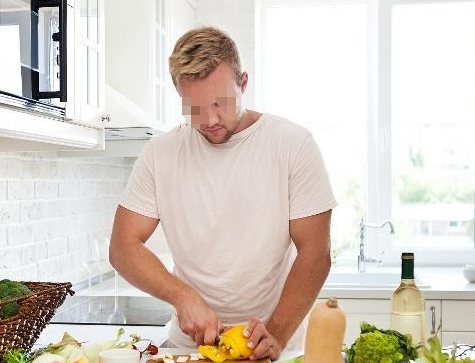
For years, your favorite dish was something from a restaurant. The lasagna from the little Italian place on the corner, the chicken curry from the takeout spot you discovered together, your mother’s famous pot roast that she would make for your birthday. It was a taste that existed outside your home, a special treat that came with its own container and required no cleanup.
Then, your partner decides to learn how to make it.
At first, it feels like the most thoughtful gesture imaginable. They spend a Sunday afternoon bustling in the kitchen, the cookbook splayed open, a look of intense concentration on their face. The house fills with the familiar, comforting aroma. When they present the final product, it’s a labor of love. You are touched, truly.
But when this act is sudden, meticulous, and disconnected from your shared culinary history, it can carry a deeper, more complex meaning. A partner suddenly learning to cook your favorite dish isn’t just performing a kind act. They are, with conscious effort, recreating a memory they were not part of, in an attempt to overwrite your past with a new one they can control.
This isn’t about nourishment. It’s about narrative.
The Psychology of the Recreated Meal
That favorite dish is more than food; it’s a Proustian madeleine, a sensory key that unlocks a specific time, place, and feeling. It’s tied to a memory—a childhood comfort, a cherished family tradition, a pivotal romantic moment from before you met them.
By mastering its recipe, your partner is attempting a profound, albeit subconscious, act of emotional alchemy. They are trying to:
- Become the Source of Your Comfort: If the dish is tied to your childhood or a lost loved one, they are trying to insert themselves into that emotional lineage. They want your sense of safety and nostalgia to be associated with them, not a memory that excludes them.
- Neutralize a Ghost: If the dish is connected to a past relationship or a part of your life they feel insecure about, cooking it perfectly is an attempt to “cook” that memory out of existence. They are symbolically saying, “I can give you this. You don’t need to cherish the memory of who gave it to you before.”
- Create a “Superior” Version: The unspoken hope is that their version will be better—more flavorful, more perfectly executed. In their mind, this will make the original memory fade, replaced by this new, improved experience they have provided.
The Difference Between a Gift and a Gambit
How can you tell if this is a loving gesture or a more complex psychological maneuver?
- A Gift is inclusive. They might say, “I know you love your mom’s pot roast. I called her for the recipe because I wanted us to have that tradition here, too.” This honors the original memory while weaving it into your shared life.
- A Gambit is exclusive. The focus is on their achievement. “You don’t need to order that curry anymore; mine is better.” Or, “I bet it never tasted this good when your ex made it.” This seeks to replace and invalidate the past, not integrate it.
The recreated dish is an attempt to control the emotional narrative. They are building a new memory, brick by savory brick, designed to be so potent it overshadows the original. It’s a loving, delicious, and deeply controlling act all at once.
What to Make of the Meal
When your partner presents you with this lovingly recreated dish, they are offering you more than food. They are offering you a revised history. The question is not whether it tastes good, but what you are being asked to forget in order to enjoy it.
It is a testament to their deep desire to be your sole source of joy, but it also reveals a fragility—an insecurity that the memories that made you who you are are a threat to who you are with them. So, you take a bite. And in that familiar, yet somehow new, flavor, you taste not just the food, but the complex, poignant, and sometimes unsettling recipe of love, insecurity, and the human need to be the most important character in someone else’s story.